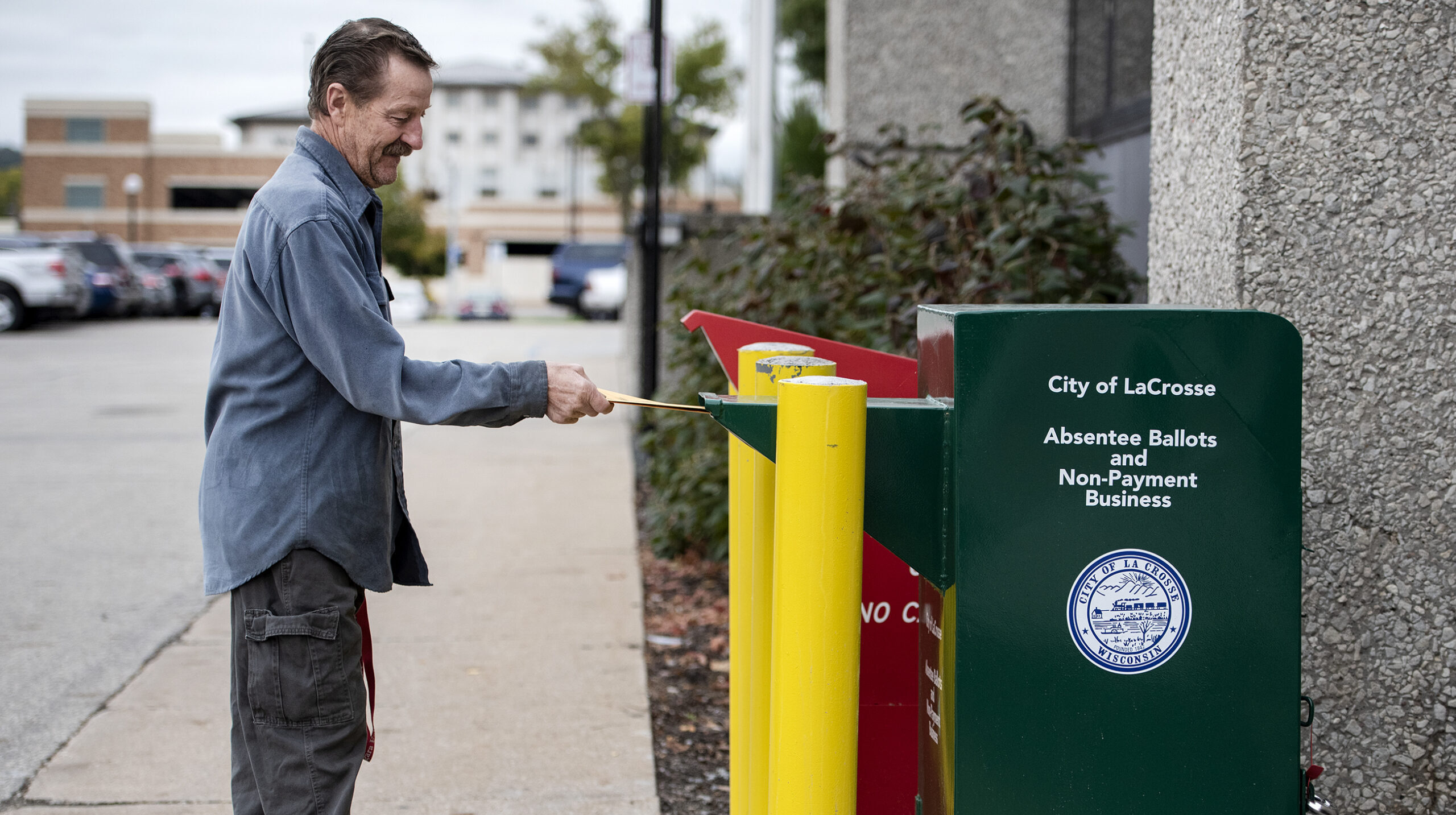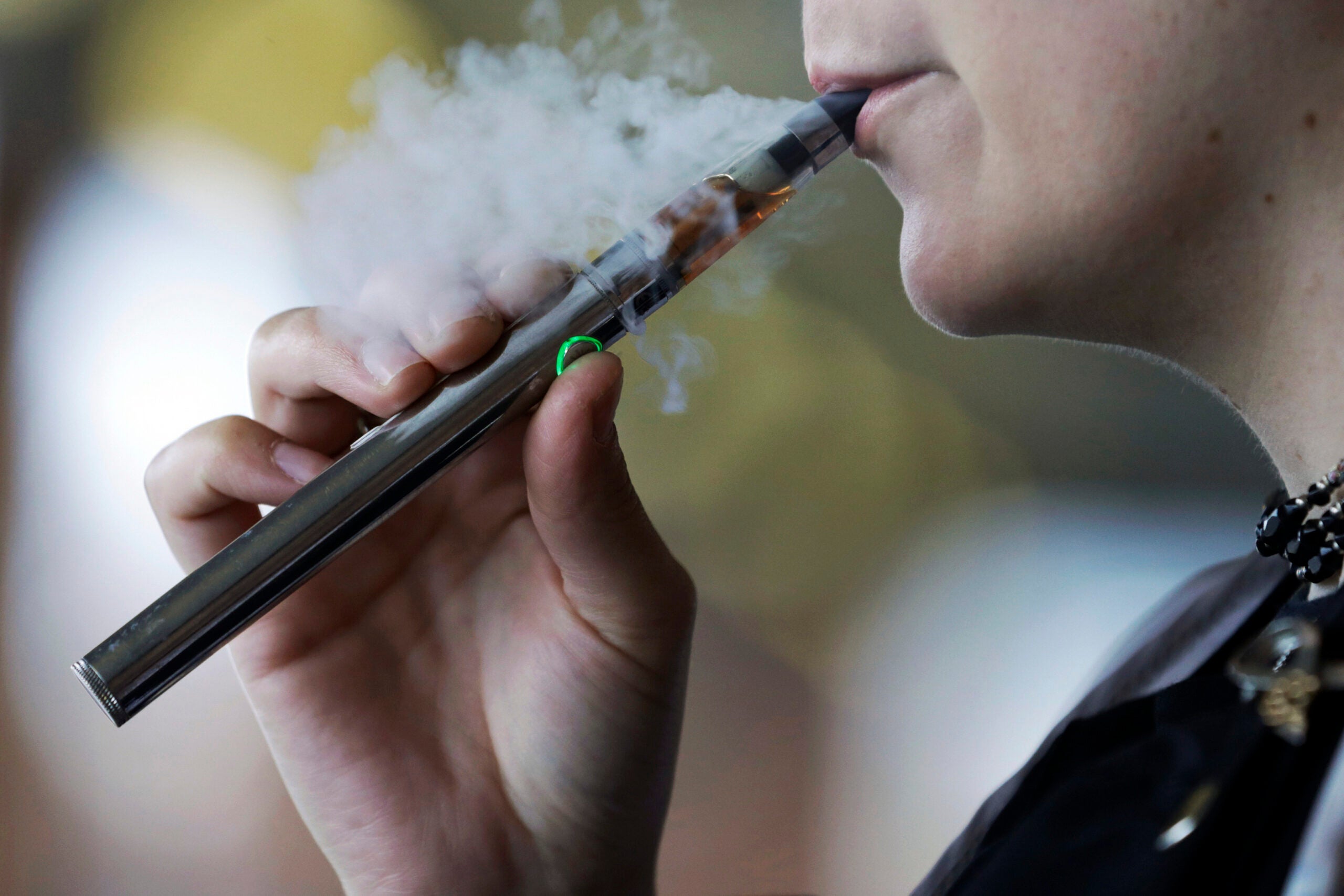A federal appeals court has blocked a lower court’s decision that would have granted a six-day extension to count absentee ballots in Wisconsin.
If the ruling by the 7th Circuit Court of Appeals stands, it means absentee ballots would need to be returned by 8 p.m. on Election Day.
The ruling was a win for Republicans who fought the extension and a setback for Democrats who wanted it. Democrats could still appeal the final ruling to the U.S. Supreme Court.
News with a little more humanity
WPR’s “Wisconsin Today” newsletter keeps you connected to the state you love without feeling overwhelmed. No paywall. No agenda. No corporate filter.
The court’s 2-1 majority found that the September decision granting the extension came too close to Election Day.
“A last-minute event may require a last-minute reaction. But it is not possible to describe COVID-19 as a last-minute event,” wrote appeals court Judges Frank Easterbrook and Amy St. Eve.
Easterbrook was nominated to the 7th Circuit by President Ronald Reagan while St. Eve was nominated by President Donald Trump.
But Judge Ilana Rovner, who was nominated by President George H.W. Bush, wrote a scathing dissent that took swipes at both the majority opinion and the Wisconsin state Legislature.
“The inevitable result of the court’s decision today will be that many thousands of Wisconsin citizens will lose their right to vote despite doing everything they reasonably can to exercise it,” Rovner wrote. “This is a travesty.”
The appeals court dispute began following a Sept. 21 decision by U.S. District Court Judge William Conley that granted the extension.
Conley ruled in favor of Democrats and other plaintiffs who were seeking the extension to deal with an influx of absentee ballots brought on by the COVID-19 pandemic. He also extended the deadline for online and mail-in registration from Oct. 14 to Oct. 21.
His ruling mirrored a six-day extension Conley ordered this spring to accommodate an influx of absentee ballots for Wisconsin’s April 7 election. The Wisconsin Elections Commission found that were it not for Conley’s order, 79,000 ballots that should have been counted would have been rejected.
Republicans fought Conley’s latest order, but they were initially rejected when the appeals court upheld Conley’s decision on Sept. 29. At the time, the court ruled that Republicans who were fighting the decision lacked the legal standing they needed to appeal it.
But at the urging of Republicans, the 7th Circuit asked the Wisconsin Supreme Court to weigh in on whether the Legislature could represent the state’s interest. On Monday, the Wisconsin Supreme Court’s conservative majority ruled that under a Wisconsin law Republicans wrote, they had the power to represent the state.
Once the 7th Circuit accepted that rationale, Easterbrook and St. Eve agreed with Republicans, writing that the change had come too close to Election Day, something the U.S. Supreme Court has discouraged.
“If the judge (Conley) had issued an order in May based on April’s experience, it could not be called untimely. By waiting until September, however, the district court acted too close to the election,” wrote Easterbrook and St. Eve.
Rovner disputed that, writing that if Conley had ruled earlier this year, Republicans would have argued the decision was premature. At the time, she noted, Wisconsin’s COVID-19 infection rates were considerably lower than they are now.
But Rovner noted that new COVID-19 cases are now “surging” in Wisconsin, criticizing Republicans for downplaying the potential risk to voters. She also criticized the Wisconsin Legislature, which is run by Republicans, for taking no action on its own to protect voting, which she argued left the court system no choice.
“I recognize that the district court’s decision to order modifications to Wisconsin’s election practices represents an intrusion into the domain of state government, but in my view it is a necessary one,” Rovner wrote. “We are seven months-plus into this pandemic. The Legislature has had ample time to make modifications of its own to the election code and has declined to do so.”
Rovner accused the Legislature of fighting the absentee ballot extension “in furtherance of its own power” and said the court’s majority opinion had elevated “legislative prerogative” over a citizen’s right to vote.
“Today, in the midst of a pandemic and significantly slowed mail delivery, this court leaves voters to their own devices,” Rovner wrote. “Good luck and G-d bless, Wisconsin. You are going to need it.”
Wisconsin Public Radio, © Copyright 2025, Board of Regents of the University of Wisconsin System and Wisconsin Educational Communications Board.






